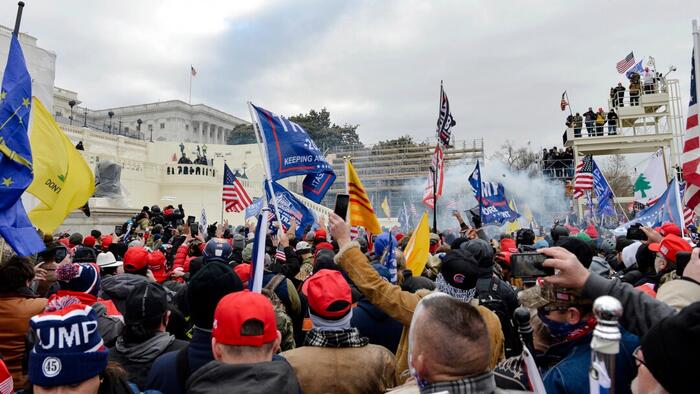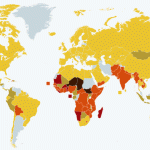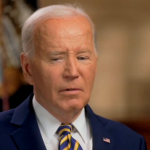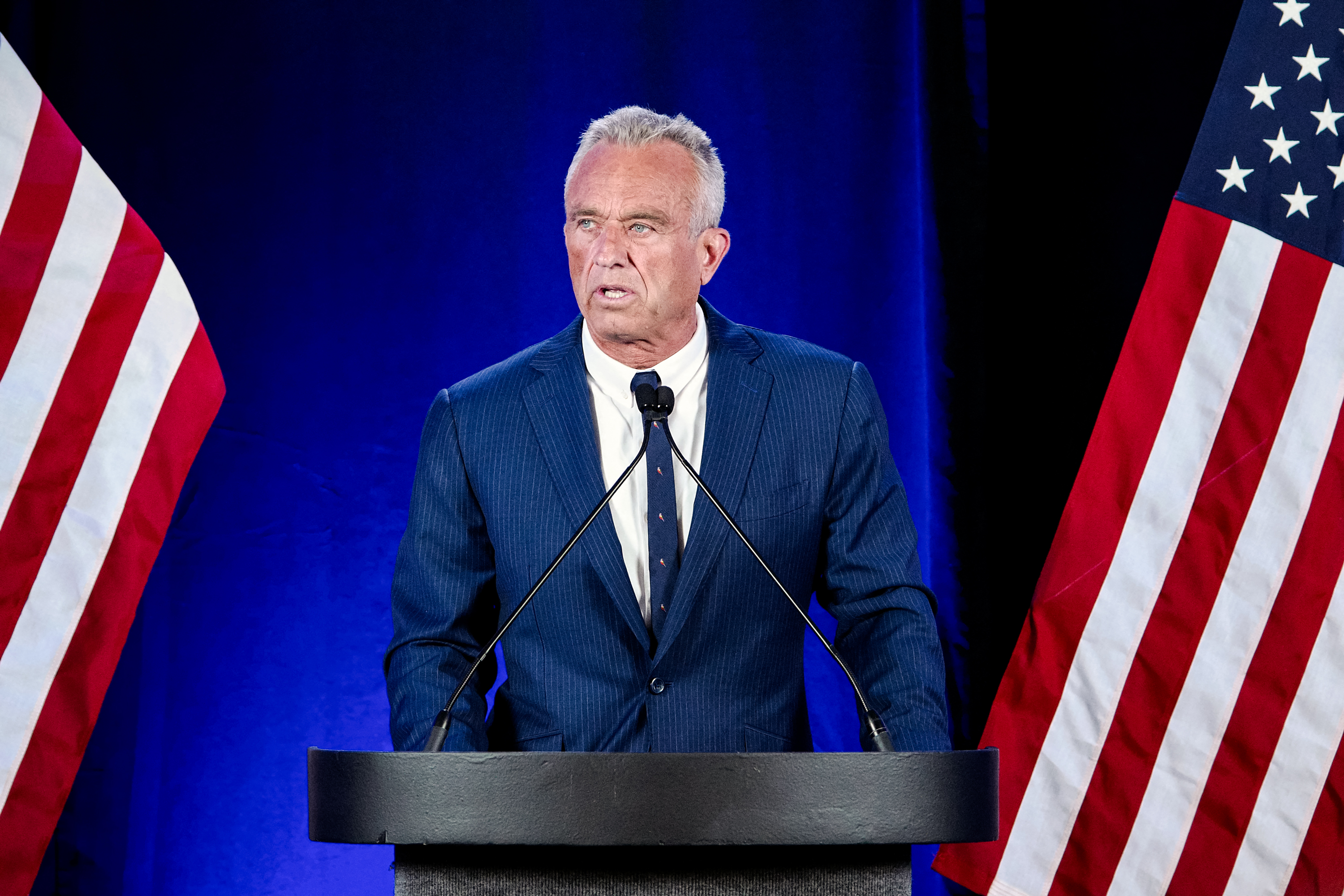Authored by Sam Dorman via The Epoch Times (emphasis ours),
After President-elect Donald Trump won a second term, multiple defendants charged for their roles in the events of Jan. 6, 2021, asked to delay their cases because they anticipate pardons from Trump.
Many were denied, but each nonetheless raised questions about how Trump will handle the cases.
According to data collected by NPR, more than 1,500 people have been charged in relation to Jan. 6, with nearly 1,000 pleading guilty.
At least a dozen cases have been dismissed, while plenty remain with changes following Trump’s election. At the beginning of November, the U.S. Attorney for the District of Columbia announced multiple sentences and guilty verdicts.
Various factors could determine whether these individuals end up avoiding jail time, but perhaps the most important is Trump’s eventual control of the Department of Justice (DOJ) and who will lead that department.
On Nov. 13, Trump announced Rep. Matt Gaetz (R-Fla.) as his pick for attorney general. Gaetz has been critical of the prosecutions and introduced a bill in July that was intended to prevent prosecutors from retaliating against Jan. 6 defendants for seeking resentencing. Gaetz has also questioned federal involvement, stating that Jan. 6 “wasn’t an insurrection” but that it “very well may have been a fedsurrection.”
Assuming the presidency also grants Trump substantial pardon power under the Constitution: Trump has indicated that he’s open to pardoning those charged but left open the possibility that some would face punishment.
“We will treat them fairly,” he said in January 2022. “And if it requires pardons, we will give them pardons, because they are being treated so unfairly.”
More recently, during an event in July, he was asked about individuals who assaulted officers. He said he would “absolutely” pardon the defendants “if they’re innocent” and added that “they were convicted by a very tough system.”
More than 70 defendants have received a mixed verdict, and so far, more than 1,000 people have been sentenced, with 64 percent receiving prison time, according to NPR data. Some defendants have also taken plea deals.
“I think there’s going to be a complete second look at all of the prosecutions,” Robert Ray, a former Trump impeachment attorney, told The Epoch Times, while noting the large number of cases brought. He added that a second look wouldn’t “necessarily yield a favorable result with regard to each and every defendant, but I think there’s going to be a pretty strenuous exercise of the pardon and commutation power to deal with overreaching [by prosecutors].”
John Pierce, an attorney who has represented Jan. 6 defendants, told The Epoch Times he expects a “blanket pardon,” while Trump–Vance transition spokeswoman Karoline Leavitt said the president-elect “will make pardon decisions on a case-by-case basis.”
Politics of Pardons
It’s unclear which individuals Trump will consider for pardon.
“That’s the million-dollar question,” Lori Ulrich, an attorney with the public defender’s office, told The Epoch Times. She is currently representing Joseph Fischer, whose case made it to the Supreme Court this year.
Fischer and other defendants face a myriad of charges, including an obstruction charge the Supreme Court addressed this summer in Fischer v. United States. It’s unclear how Trump’s DOJ will apply that ruling, but the president-elect’s pardons could be influenced by factors such as the politics surrounding his pardons.
“If President Biden either pardons or commutes the sentences for Hunter Biden, that gives President Trump political cover to either pardon or commute the non-violent J6 offenders, [as well as] Peter Navarro, and Steve Bannon, if he chooses to,” John Shu, a constitutional law expert who served in both Bush administrations, told The Epoch Times.
Shu was referring to President Joe Biden’s son, who was convicted in September of various tax offenses. Both of Trump’s former White House advisers, Steve Bannon and Peter Navarro, could be pardoned after each served a four month sentences for defying subpoenas from the House committee that investigated Jan. 6.
A CBS poll found that three years after the events of Jan. 6, 78 percent of Americans expressed disapproval toward “actions of those who forced their way into the Capitol.”
William Shipley, an attorney for one of the defendants, suggested in a motion on Nov. 10 that the election didn’t reflect well on the DOJ’s efforts.
“Defendant Baker would point out that the ‘people’ on behalf of whom the Government purports to speak made themselves heard clearly on November 5, and that should mean something to the Department of Justice without regard to what Administration is now in charge,” Shipley said in a motion for defendant Stephen Michael Baker.
That motion, which asked for a delay in proceedings, was quickly rejected by U.S. District Judge Christopher Cooper this month.
Upon entering office, Trump’s pardon power would allow him to commute sentences and pardon convicts who have already served time, such as Ulrich’s client, Riley Williams. Williams was accused of helping to steal then-House Speaker Nancy Pelosi’s laptop. She was found guilty on two felony counts, but the jury was unable to reach a verdict on two other counts, including aiding and abetting theft of government property.
Non-Violent Offenders
Shu told The Epoch Times that pardons for non-violent offenders were more politically palatable.
In August, the DOJ said that approximately 140 police officers were assaulted on Jan. 6, while more than 500 people have been charged with assaulting, resisting, or impeding officers or employees. It added that “approximately 163 individuals … have been charged with using a deadly or dangerous weapon or causing serious bodily injury to an officer.”
Among those are Daniel Ball, who pleaded not guilty but whom the DOJ accused of, among other things, “throwing an explosive device that detonated upon at least 25 officers.” Others included a father-son pair who pleaded guilty in January, and Zachary Alam, who was found guilty last year.
David Gelman, an attorney and former Trump campaign surrogate, told The Epoch Times that re-examining the Jan. 6 prosecutions would have to occur on a “case-by-case basis” but indicated that Trump could consider violence in choosing how to exercise his pardon power.
Trump said at a town hall in 2023 that he was “inclined to pardon many of” the defendants who had been convicted. “I can’t say for every single one because a couple of them, probably, they got out of control,” he said.
Earlier this year, he started one of his rallies with a recording of the national anthem sung by Jan. 6 prisoners. He also vowed in March that his “first acts” as president would be to “Free the January 6 Hostages being wrongfully imprisoned,” he wrote on his Truth Social account.
In a motion filed just after the election, one of the Jan. 6 defendants, Anna Lichnowski, asked her judge to postpone sentencing partly on the basis that her offenses were non-violent, making her “a good candidate for a pardon,” according to her attorney.
Lichnowski was one of a series of defendants who filed motions for some kind of delay in their cases after Trump’s victory. Many of them have been denied, including by U.S. District Judge Reggie Walton, who said that Trump’s potential pardon was “irrelevant” to Lichnowski’s case.
“The potential future exercise of the discretionary pardon power, an Executive Branch authority, is irrelevant to the Court’s obligation to carry out the legal responsibilities of the Judicial Branch,” Walton said in a Nov. 7 court order.
Matthew Graves, the U.S. Attorney for the District of Columbia, similarly resisted the motions while arguing that the public is interested in a quick administration of justice.
Graves will likely exit the DOJ in Trump’s second term, experts speculated—something that is expected for many prosecutors at the beginning of a new administration. During Trump’s and Biden’s first terms, dozens of prosecutors were asked to leave.
The vast majority of defendants have been charged with a trespassing offense, the use of which the U.S. Court of Appeals for the D.C. Circuit upheld in October. Defendant Couy Griffin, founder of Cowboys for Trump and a former county commissioner from New Mexico, had asked the court to review the DOJ’s use of this charge against him.
In a 2–1 decision, the court held that the DOJ could apply the trespassing law without proving that he was aware that former Vice President Mike Pence’s presence on the Capitol grounds was the reason for restricting that area.
Obstruction Charge
In June, the Supreme Court held in a 6–3 decision that the DOJ had misinterpreted a financial reform law in attempting to accuse the Jan. 6 defendants of obstructing an official proceeding.
The majority opinion in that case, Fischer v. United States, held that the DOJ erred in its attempt to disentangle two portions of the Sarbanes–Oxley financial reform law (Section 1512(c)(1) and (c)(2)).
The DOJ had argued that the law allowed prosecutions that targeted obstructive conduct in a catch-all way that included methods other than those mentioned at the beginning of the section.
A majority of the Supreme Court, including Justice Ketanji Brown Jackson, disagreed and held: “To prove a violation of §1512(c)(2), the Government must establish that the defendant impaired the availability or integrity for use in an official proceeding of records, documents, objects, or other things used in an official proceeding, or attempted to do so.”
It’s unclear how Trump and his DOJ will apply the Fischer decision to the defendants’ unique circumstances. It carries a 20-year maximum sentence.
In November, the DOJ said that “approximately 259 defendants who, at the time Fischer was decided, were charged with or convicted of violating 18 U.S.C. § 1512 to determine whether the charge should continue to be prosecuted.”
The DOJ said that after Fischer, the government “decided to forgo the Section 1512(c)(2) charge for approximately 96 defendants, will continue to pursue the charge for approximately 13 defendants, and continues to assess the remaining defendants.”
Approximately 133 were sentenced, and more than half were convicted of that offense and other felonies, according to DOJ data from August.
Austin Alonzo contributed to this report.
Loading…











